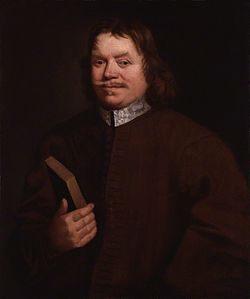John Bunyan Quote
The Conclusion NOW Reader, I have told my Dream to thee; See if thou can’st interpret it to me, Or to thyself, or Neighbor; but take heed Of mis-interpreting; for that, instead Of doing good, will but thyself abuse: 5By mis-interpreting, evil ensues. Take heed also, that thou be not extreme, In playing with the out-side of my Dream: Nor let my figure or similitude Put thee into a laughter or a feud; 10Leave this for Boys and Fools; but as for thee, Do thou the substance of my matter see. Put by the Curtains, look within my Vail; Turn up my Metaphors, and do not fail There, if thou seekest them, such things to find 15As will be helpful to an honest mind. What of my dross thou findest there, be bold To throw away, but yet preserve the Gold; What if my Gold be wrapped up in Ore? None throws away the Apple for the Core. 20But if thou shalt cast away all as vain, I know not but ’twill make me Dream again
The Conclusion NOW Reader, I have told my Dream to thee; See if thou can’st interpret it to me, Or to thyself, or Neighbor; but take heed Of mis-interpreting; for that, instead Of doing good, will but thyself abuse: 5By mis-interpreting, evil ensues. Take heed also, that thou be not extreme, In playing with the out-side of my Dream: Nor let my figure or similitude Put thee into a laughter or a feud; 10Leave this for Boys and Fools; but as for thee, Do thou the substance of my matter see. Put by the Curtains, look within my Vail; Turn up my Metaphors, and do not fail There, if thou seekest them, such things to find 15As will be helpful to an honest mind. What of my dross thou findest there, be bold To throw away, but yet preserve the Gold; What if my Gold be wrapped up in Ore? None throws away the Apple for the Core. 20But if thou shalt cast away all as vain, I know not but ’twill make me Dream again
Related Quotes
About John Bunyan
Bunyan came from the village of Elstow, near Bedford. He had some schooling and, at the age of sixteen, joined the Parliamentary Army at Newport Pagnell during the first stage of the English Civil War. After three years in the army, he returned to Elstow and took up the trade of tinker, which he had learned from his father. He became interested in religion after his marriage, attending first the parish church and then joining the Bedford Meeting, a Puritan Nonconformist group in St John's church Bedford, and later became a preacher. After the restoration of the monarchy, when the freedom of nonconformists was curtailed, Bunyan was arrested and spent the next twelve years in prison because he refused to give up preaching. During this time, he wrote a spiritual autobiography, Grace Abounding to the Chief of Sinners, and began work on his most famous book, The Pilgrim's Progress.
In 1676, Charles II withdrew his Declaration of Indulgence and four years later, Bunyan was again imprisoned – this time for only six months. During that time, he completed The Pilgrim's Progress.
Bunyan's later years were spent in relative comfort and he continued to be a popular author and preacher, and was the pastor of the Bedford Meeting. He died aged 59 after falling ill on a journey to London and is buried in Bunhill Fields. The Pilgrim's Progress became one of the most published books in the English language; 1,300 editions having been printed by 1938, 250 years after the author's death.
Bunyan is remembered in the Church of England with a Lesser Festival on 30 August. Some other churches of the Anglican Communion, such as the Anglican Church of Australia, honour him on the day of his death (31 August).
